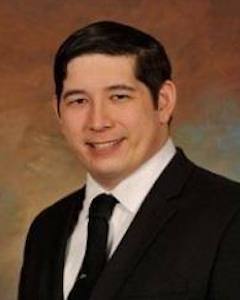PGY-2 Emergency Medicine Pharmacy Residency - Orlando Health Orlando Regional Medical Center
The PGY-2 Emergency Medicine (EM) Pharmacy Residency at Orlando Health Orlando Regional Medical Center (OHORMC) is a one-year post-graduate training program designed to develop essential knowledge and skills for contemporary health-system pharmacy practice. The residency program provides flexibility to adapt to the resident’s specifics learning needs and goals. Training is provided through rotational and longitudinal experiences.
Graduates of the OHORMC PGY-2 EM Pharmacy Residency will be competent and confident practitioners of pharmaceutical care in multiple patient care environments, assuring safe, effective, and appropriate drug therapy.
All of the required clinical rotations will be conducted at Orlando Health Orlando Regional Medical Center (OHORMC), Orlando Health Arnold Palmer Hospital for Children (OHAPH), and either Orlando Health Doctor P. Phillips Hospital (OHDPH) or Orlando Health South Seminole Hospital (OHSSH). Elective rotations could take place at OHORMC, Orlando Health Arnold Palmer Hospital (OHAPH), Orlando Health Winnie Palmer Hospital for Women & Babies (OHWPH), an affiliated Poison Control Center or other facilities within the Orlando Health system.
PGY-2 Program Purpose
PGY-2 pharmacy residency programs build on Doctor of Pharmacy (Pharm.D.) education and PGY-1 pharmacy residency programs to contribute to the development of clinical pharmacists in advanced or specialized practice. PGY-2 residencies provide residents with opportunities to function independently as practitioners by conceptualizing and integrating accumulated experience and knowledge and incorporating both into the provision of patient care that improves medication therapy. Residents who successfully complete an accredited PGY2 pharmacy residency should possess competencies that qualify them for clinical pharmacist and/or faculty positions and position them to be eligible for attainment of board certification in the specialized practice area (when board certification for the practice area exists).
Goals of the Residency
Graduating PGY-2 Emergency Medicine Pharmacy Residents will:
- Assure safe, effective, appropriate drug therapy and prevent, identify, and resolve drug related problems.
- Present as a competent, confident, and compassionate practitioner and set and reassess goals.
- Demonstrate a commitment to the advancement of the profession and continued personal growth.
- Possess comprehensive health-system pharmacy skills that promote future professional growth.
- Create, promote, and participate as a part of a multidisciplinary healthcare team.
- Demonstrate the ability to identify opportunities for improvement within a practice and practice site.
- Provide education to professional and non-professional audiences, utilizing effective communication skills.
- Demonstrate a foundation of leadership skills in pharmacy practice.
Residency Director
Brandon Huang, Pharm.D., BCCCP, BCEMP
Director, PGY-2 Emergency Medicine Pharmacy Residency
Clinical Pharmacist, Emergency Medicine
Orlando Health Orlando Regional Medical Center

|
Education: Pharm.D., University of Florida College of Pharmacy, Training: PGY-1 Pharmacy Practice Residency (2014-2015) & PGY-2 Critical Care Residency (2015-2016) at Orlando Regional Medical Center, Orlando, FL Interest Areas: Emergency Medicine, Disaster Preparedness and Emergency Management, Toxicology, Wilderness Medicine, Street Medicine, and Trauma Email: [email protected] |
|
Required Rotations |
Elective Rotations (1 month each) |
|
|
Additional Longitudinal Activities
- Emergency Medicine Practice Research Project
- Design and conduct a project to develop or enhance an aspect of patient care specific to emergency medicine patients
- Present results at the Florida Residency Conference
- Prepare a manuscript suitable for publication
- Evidence-Based Medicine Guideline / Protocol / Order Set
- Develop an evidence-based medicine guideline / protocol / order set related to individual and/or population-based care of emergency medicine patients
- Quality Improvement Project or Medication Use Evaluation
- Seminar
- Prepare and present a 1-hour ACPE-accredited seminar focusing on a controversial emergency medicine pharmacotherapy issue
- Residency Case-Presentation
- Present a 1-hour ACPE-Accredited CE patient-case based topic review
- Didactic Teaching Experience
- Opportunities will be provided for the resident to develop / give lectures to medical students and / or pharmacy students throughout the year.
- PGY-2 Pharmacy Journal Club
- Organize and participate in bi-annual PGY-2 journal club
- Emergency Medicine Administration (Longitudinal Learning Experience)
- Code Blue 90 Coverage
- Advanced Cardiac Life Support (ACLS) and Pediatric Advanced Life Support (PALS) certification
- Mass Casualty Intake Training (including county-wide drill)
- Leadership Development
- Residency Wellness Program
Optional Experiences (subject to yearly availability)
- Decon/HAZMAT training
- Emergency Medical Services/Air Care ride along experiences
- Access to Central Florida Disaster Coalition meetings and training
Weekend Experiences
Pharmacy Operations
- Serve as a clinical staff pharmacist in the Emergency Department (ED) at OHORMC
- 12 hour shifts approximately every fourth weekend
- Responsibilities:
- Processing medication orders
- Answering drug information questions from health-care professionals
- Responding to all emergency alerts in the ED
- Comprehensive monitoring of vancomycin and aminoglycosides
Program Specifics
|
ASHP Residency Directory Information |
Residency Program Benefits |
|
|
|
Additional Residency Program Benefits |
|
|
|
|
Orlando Health Pharmacy Residency Basics |
|
|
PGY-2 Emergency Medicine Pharmacy Residency Preceptors
|
PGY-2 Emergency Medicine Residency Preceptors: |
Additional Elective Preceptors: |
|
|

